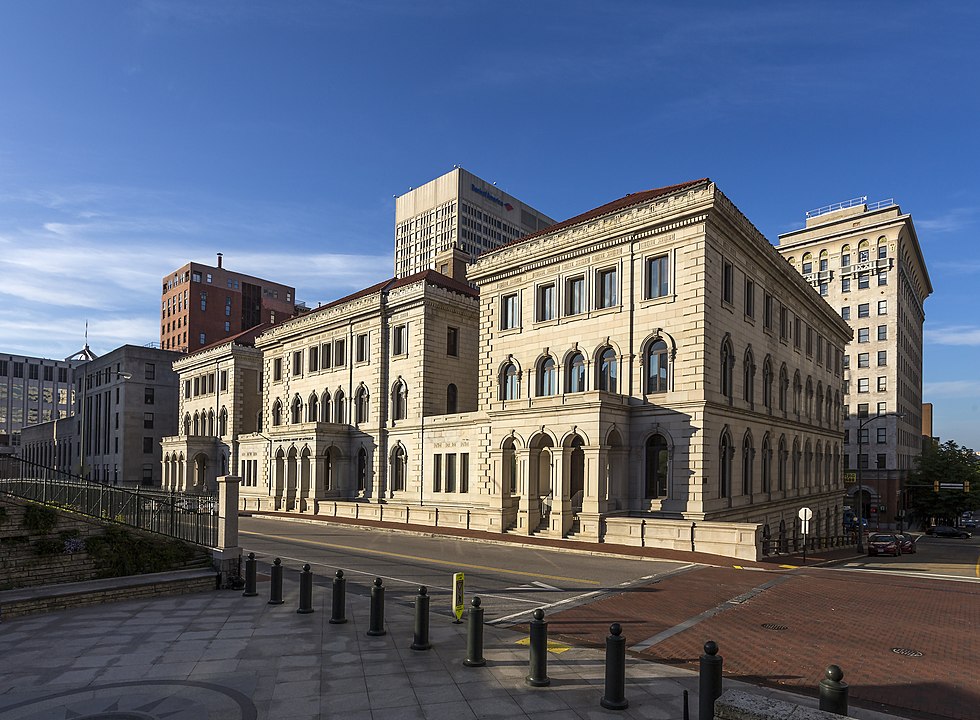RICHMOND, Va. (CN) — A Fourth Circuit panel heard arguments Wednesday over the treatment of undocumented children at a rural Virginia mental health facility, with an attorney for the kids accusing the juvenile center of falling short in the care it provides.
The class action was brought by an unnamed Mexican plaintiff who was 16 at the time he was transferred to Shenandoah Valley Juvenile Center, a facility contracted under the federal Office of Refugee Resettlement for unaccompanied minors with mental health issues requiring high-level treatment. The complaint paints John Doe as a victim of abuse growing up before facing more trauma as he made his way over the U.S. border.
The case was appealed to the Richmond-based Fourth Circuit after a federal judge dismissed the claims based on pretrial evidence.
“Doe 4 has not mustered sufficient evidence to show an underlying constitutional violation with regard to his mental health claim,” U.S. District Judge Elizabeth K. Dillon wrote in a December 2018 opinion after refusing to consider additional evidence from experts claiming the facility was failing to meet treatment requirements.
Theodore A. Howard, a lawyer with the Washington firm Wiley Rein representing the children, argued Wednesday morning that the standard used in that dismissal was too strict.
“Unaccompanied minor immigrant children are supposed to be placed in the least restrictive setting consistent with their best interests,” he said, citing laws that govern the treatment of those children.
He argued the lack of adequate treatment, as illustrated by the rejected testimony, denied the children at Shenandoah Valley the chance to be moved to a less secure setting.
“The facility must be able to provide for the child’s physical and mental wellbeing,” Howard said. “If there’s no treatment, there’s no way for the child to get better.”
But U.S. Circuit Judge Harvie Wilkinson, a Ronald Reagan appointee, was quick to push back against the claims of inadequate treatment. He said evidence showed the children had access to mental health professionals, at least one doctor and several counselors, as well as other needs like education, food and shelter.
“I realize you think they didn’t meet with your client long enough, but there is mental health treatment,” the judge said.
Wilkinson stuck to this line throughout the hour-long remote hearing, going as far as suggesting it would be inappropriate under U.S. Supreme Court precedent for the court to take action against the facility if it would require regular monitoring for improvements.
“It's really not a function of the federal courts to be institutional supervisors of schools, prisons, mental health facilities,” he said. “I’m worried, from a federalism standpoint.”
The judge also suggested the case was part of a scheme to fleece the federal agency overseeing the program for more money.
“I’ve been in a lot of cases, school cases, and DOJ and elsewhere, and it was almost inevitable that in those cases the teachers or officials or whatever, they would routinely testify the care wasn’t adequate. And why?” Wilkinson asked. “There’s very few institutional cases where I haven’t heard staff members say they want more funding.”
“That’s part of the dynamic for this,” he added.
U.S. Circuit Judge Barbara Keenan, a Barack Obama appointee, also took issue with aspects of the case but from a very different perspective than Wilkinson.
“What jumps off the page is this giant hole from the district court opinion that these are children,” she said, wondering why evidence was being scrutinized under a punitive standard, one usually used in criminal cases.
“Children, under the law, are not criminals and their conduct is not criminal unless certified as adults,” Keenan added. “This has to make a difference on the analysis.”
Jason A. Botkins, Shenandoah Valley’s lawyer with the Harrisonburg, Virginia-based Litten & Sipe, argued the minors had erred in naming the center as the defendant in the case. He noted the facility is under contract with the Office of Refugee Resettlement and any changes to treatment would have to start with the federal agency.
“ORR remains legal custodians,” Botkins said regarding who is actually responsible for the wellbeing of the unaccompanied minors, adding that treatment is authorized under the agreement with the agency. “Unless there's an emergency they have to seek ORR approval.”
But Keenan returned to her concern about the standard used by the district court to analyze the claims.
“For a child detainee, why is that something this court cannot address?” she asked, adding there still has to be a measure of the treatment being provided regardless of whether the facility is under a government contract.
If that treatment isn’t up to par, the judge said the court should be able to step in against the facility.
“They shouldn’t be accepting children if they can’t provide proper mental health care,” she said. “I don’t understand why there’s a desire to pigeonhole these children into a standard that is most often used for criminals.”
Chief U.S. Circuit Judge Roger Gregory, another Obama appointee, rounded out the three-member panel. The judges did not signal when they intend to rule.
Subscribe to Closing Arguments
Sign up for new weekly newsletter Closing Arguments to get the latest about ongoing trials, major litigation and hot cases and rulings in courthouses around the U.S. and the world.









